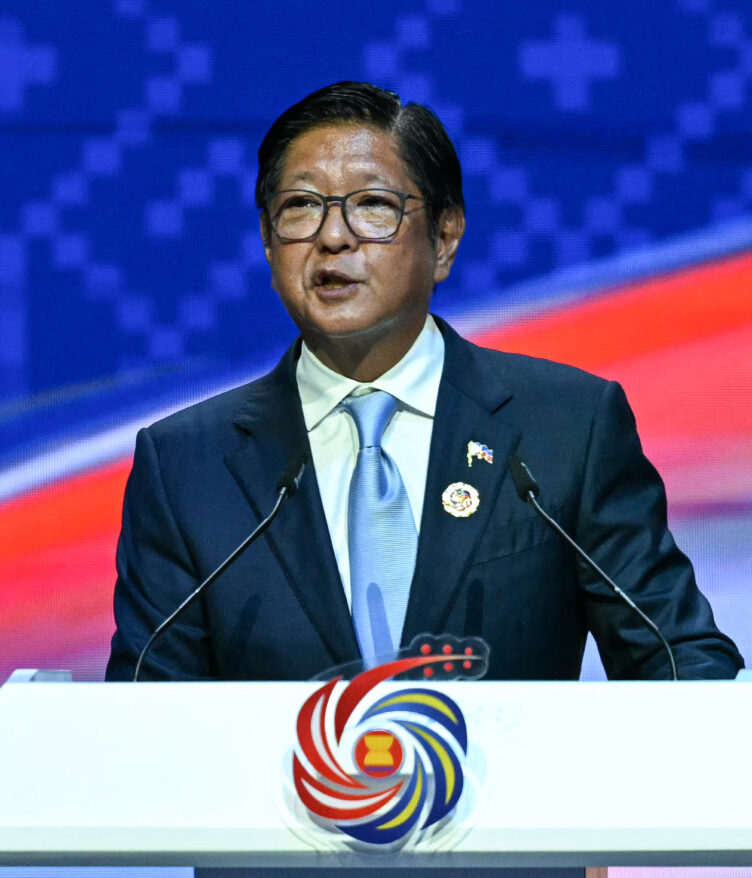IN a country where financial stability is a major struggle for many, stories of Filipinas rising above poverty while in a relationship with foreigners have become common for a long time now, yet they remain debated. This is fueled by unending stereotypes surrounding those who are involved with foreigners.
The A.F.A.M. Label
A.F.A.M., which stands for “A Foreigner Assigned to Manila,” or “A Foreigner Around Manila” has become a label for any foreigner involved with a Filipino, mostly Filipina, regardless if they are indeed a foreigner assigned to Manila or not. This label often describes white men and rarely the black community. Abby (22) stated, “When I hear the word AFAM, I think about white or western people, gano’n.” Joanna (21) and Lani (21), also associated the term with Americans. This suggests that some Filipinos view the white community as the most preferred partner for dating.
Culture of Survival
Nowadays, many Filipinos believe that meeting a foreigner can lead to a better life, primarily due to the perception that foreigners enjoy greater financial stability. They believe that an encounter with a foreigner can be an opportunity for financial support and a chance to migrate, both of which can lead to a more comfortable and privileged life. This stereotype encourages them to seek relationships with foreigners, assuming they can help them escape poverty—a major problem that almost every citizen of the Philippines faces. This, in turn, creates a culture of survival that is born not out of love, but out of necessity.
However, opinions on this matter vary. For Abby, this is a matter of someone’s personal choice. “It’s their life, siguro as long as they don’t deceive the person they date, they don’t do anything na nakakasakit do’n sa foreigner. Pero at the end of the day, I’m not involved, so I can only speak for myself,” she explained.
On the other hand, Lani expressed a more critical view, believing that this is not the right thing to do. “I can’t blame them for dating foreigners for financial gain because maybe it’s the only way for them to survive the Philippine system but as much as possible, I don’t want them to do this because it’s not right. They should date foreigners because they love them,” she stated. These divided perceptions show that while others believe some Filipinas date for financial gain, others preach for more genuine connections.
Societal Scrutiny
Although some may not be motivated to date foreigners, they still perceive those who do to have a financial interest. This stereotype of a ‘gold digger’ affects those Filipinas who genuinely date foreigners out of sincerity. Unfortunately, their genuine relationships are not spared from societal scrutiny, especially now that a lot of couples show their lives on online platforms, which makes them prone to public judgment.
Trixie (22), who once dated a foreigner, admitted that she received some subtle negative remarks suggesting that she was only interested in financial gain.
“Dati, sinasabihan ako na magpabili ng ganito ganyan sa partner ko, as if ‘yun ‘yung reason bakit ako nakipag-date. It just sounds and feels off for someone like me who has genuine intentions.”
Trixie emphasized that the perception that foreigners lead easier lives financially can be damaging.
“Kasi if you’ve been in an actual friendship or relationship with a foreigner, you’ll learn talaga na may times na mas hirap sila financially kaysa sa atin and that’s something some people don’t believe. It’s the same with others’ perception sa mga OFW ganon. They think na kapag nasa ibang bansa, masarap na buhay, marami na agad pera. It doesn’t work that way,” she shared.
The phrase “isang pinay na naman ang nakaahon sa kahirapan” became the most common stereotype directed at Filipinas who post videos of their foreign partners online. People like Abby, find this very condescending.
“Especially the fact na Filo rin ang nagsasabi ng phrase na ‘yon. ‘Pag may nagsasabi ng gano’n, I just think they’re insecure since ‘di na nga sila masaya, wala sila partner, wala pa sila pera. Parang coming from a place of insecurity,” she added.
Joanna echoes this sentiment, stating that it has a negative connotation, “it makes us (Filipinos) look like pera lang ang habol sa AFAM which is actually not a good thing,” she explained.
While some may seek relationships motivated by financial interests, it is crucial to recognize that not every relationship with foreigners stems from such reasons. Many still engage out of genuine affection and interest. Those who doubt this may affect not only those who are in authentic relationships but also reflect societal insecurities. Accusing fellow Filipinos of having such intentions just keeps the negative stereotype going, suggesting that Filipinos are inherently driven by such motives. It is also invalidating to assume that every foreigner lives a good life, simply because they reside outside of the country.
With reports from Bea J. Larosa
How useful was this post?
Click on a star to rate it!
Average rating 0 / 5. Vote count: 0
No votes so far! Be the first to rate this post.
We are sorry that this post was not useful for you!
Let us improve this post!
Tell us how we can improve this post?








